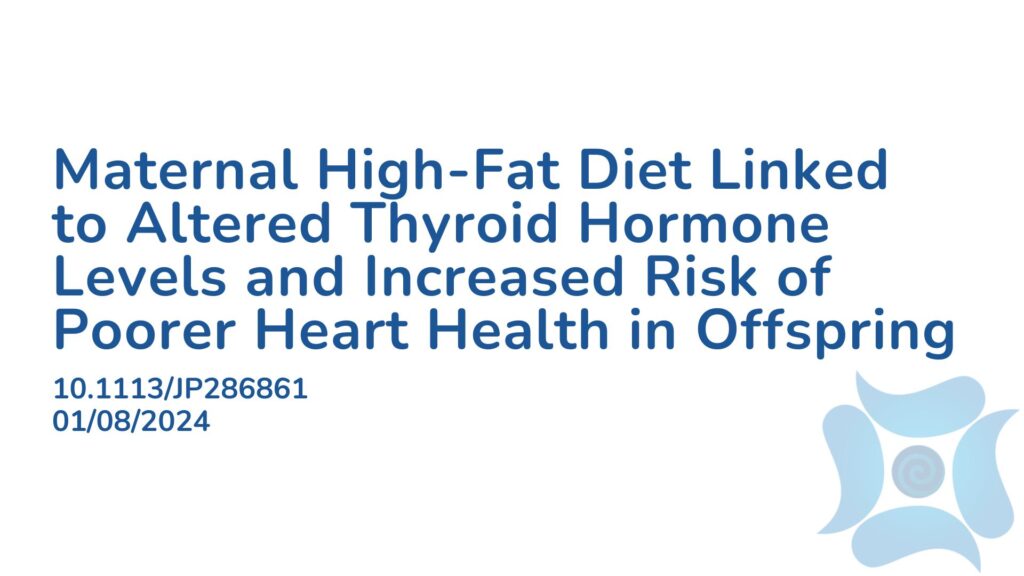Summary:
A Western-style diet, which is often high in fructose and rich in saturated and trans-fatty acids, has been a major contributing factor to obesity, which has nearly tripled since 1975. Women of childbearing age are increasingly likely to enter pregnancy with high-fat diets (HFDs) and obesity. Babies born to mothers with obesity and those who consume HFDs during pregnancy are at increased risk of developing cardiometabolic disorders later in life, such as cardiovascular events before the age of 25 and a 30% higher risk of a cardiovascular event in adulthood. The link between maternal obesity and HFD exposure during pregnancy and the poor health outcomes in offspring is not yet fully understood. In this study, the authors aimed to investigate the impact of maternal high-fat and high-energy diet (HF-HED) exposure on thyroid hormone health and metabolic signaling pathways in a non-human primate fetal heart. They hypothesized that in utero exposure to a maternal HF-HED would alter thyroid hormone status and the metabolic profile of the fetal heart. Female baboons were randomly assigned to either a control diet or HF-HED approximately 9 months before conception. At 165 days gestational age, fetuses were delivered via Caesarean section. The results showed that maternal HF-HED reduced the concentration of active thyroid hormone, specifically triiodothyronine (T3). In addition, HF-HED led to lower levels of cardiac markers involved in insulin-mediated glucose uptake. These findings suggest that maternal HF-HED alters cardiac thyroid hormone levels, potentially triggering early signs of insulin resistance, which may contribute to the increased risk of cardiometabolic disorders later in life.
Abstract:
The consumption of high fat–high energy diets (HF-HEDs) continues to rise worldwide and parallels the rise in maternal obesity (MO) that predisposes offspring to cardiometabolic disorders. Although the underlying mechanisms are unclear, thyroid hormones (TH) modulate cardiac maturation in utero. Therefore, we aimed to determine the impact of a high fat–high energy diet (HF-HED) on the hormonal, metabolic and contractility profile of the non-human primate (NHP) fetal heart. At ∼9 months preconception, female baboons (Papio hamadryas) were randomly assigned to either a control diet or HF-HED. At 165 days gestational age (term = 184 days), fetuses were delivered by Caesarean section under anaesthesia, humanely killed, and left ventricular cardiac tissue (Control (n = 6 female, 6 male); HF-HED (n = 6 F, 6 M)) was collected. Maternal HF-HED decreased the concentration of active cardiac TH (i.e. triiodothyronine (T3)), and type 1 iodothyronine deiodinase (DIO1) mRNA expression. Maternal HF-HED decreased the abundance of cardiac markers of insulin-mediated glucose uptake phosphorylated insulin receptor substrate 1 (Ser789) and glucose transporter 4, and increased protein abundance of key oxidative phosphorylation complexes (I, III, IV) and mitochondrial abundance in both sexes. Maternal HF-HED alters cardiac TH status, which may induce early signs of cardiac insulin resistance. This may increase the risk of cardiometabolic disorders in later life in offspring born to these pregnancies.
Article Publication Date: 01/08/2024
DOI: 10.1113/JP286861




